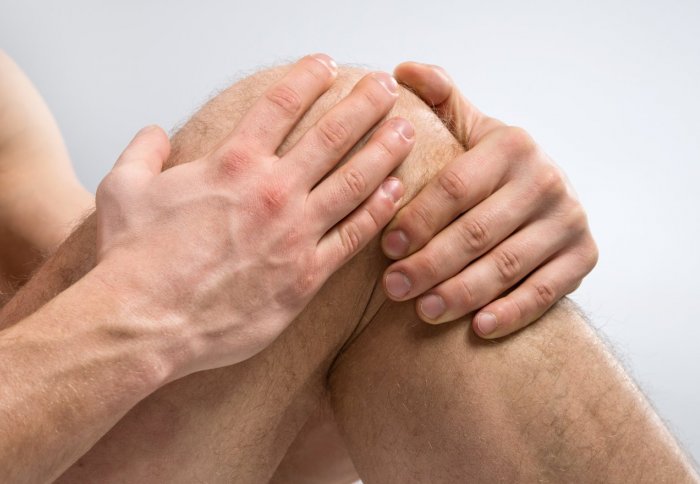Artificial replacements for knee meniscus to be developed by Imperial spinout
by Colin Smith

Researchers are developing an artificial knee meniscus
Patients who have damaged their knees could in the future get help from a new Imperial spinout, which is aiming to develop an artificial meniscus.
The knee meniscus is a structure that supports the mechanical integrity of the knee and helps to distribute impact. Meniscal tearing is a very common injury and often leads to severe pain, restricted movement, and osteoarthritis. These tears occur most often in athletes and the elderly and rarely heal. There are treatments such as human tissue implants, but they are not widely available and it is still not clear if they are effective.
Now, researchers at Orthonika, a new business created by Imperial scientists jointly with the company Sierra MedTech, are developing an artificial knee meniscus that mimics the complex fibrous structure of real ones, which is able to cope with the high stresses and loads associated with the knee. The team are also developing the technology for manufacturing the artificial knee meniscus device and the instruments needed for inserting it into the knee during surgery.
Currently, patients who have damaged their menisci do not have many options. For one of the commonest problems afflicting active adults, a practical alternative is sorely needed.
– Professor Justin Cobb
Department of Surgery & Cancer
Imperial Innovations helped the researchers to commercialise their work by bringing them together with Sierra MedTech, a specialist in the design and fabrication of engineered devices for use in medicine, which raised the initial seed-funding of £150,000 from a group of angel investors.
The lead investigators at Imperial are Professors Andrew Amis, from Imperial’s Department of Mechanical Engineering and the Department of Surgery & Cancer, and Justin Cobb, from the Department of Surgery & Cancer at the College.
Professor Cobb said: “Currently, patients who have damaged their menisci do not have many options. We can remove unstable pieces of meniscus, but this does not restore normal meniscal function, so the underlying problem persists. Repairing old and worn tissue is not always feasible. Human transplants are possible, but the results of this are variable. For one of the commonest problems afflicting active adults, a practical alternative is sorely needed.”
The early stage of the research was supported by a proof of concept grant from the Wellcome Trust and since 2013, Professors Cobb and Amis have been collaborating with Sierra MedTech, developing several prototype artificial menisci for the knee. To do this, the scientists studied the structure and function of healthy menisci and applied advanced manufacturing technologies to replicate the native structure and organisation of the tissue.
Professor Amis added: “The meniscus has an extremely complex structure and is subject to high stresses. It needs to be both elastic and strong, capable of adapting to an individual’s movement. Our team have studied the structure of a natural meniscus and how it reacts to different forces to design a substitute that would function like a natural meniscus. We have also designed a surgical insertion procedure and related instruments, such as a secure means of fixation to the bone. I look forward to working with the rest of the team at Orthonika to turn our current prototype into clinical reality.”
The next steps at Orthonika will be to further advance and test knee meniscus designs. The researchers will also explore ways to develop the prototypes into a product for sale on the mass market, develop methods for how the technology can be applied in clinical settings and move towards obtaining the relevant regulatory approvals in the UK.
Article text (excluding photos or graphics) © Imperial College London.
Photos and graphics subject to third party copyright used with permission or © Imperial College London.
Reporter
Colin Smith
Communications and Public Affairs